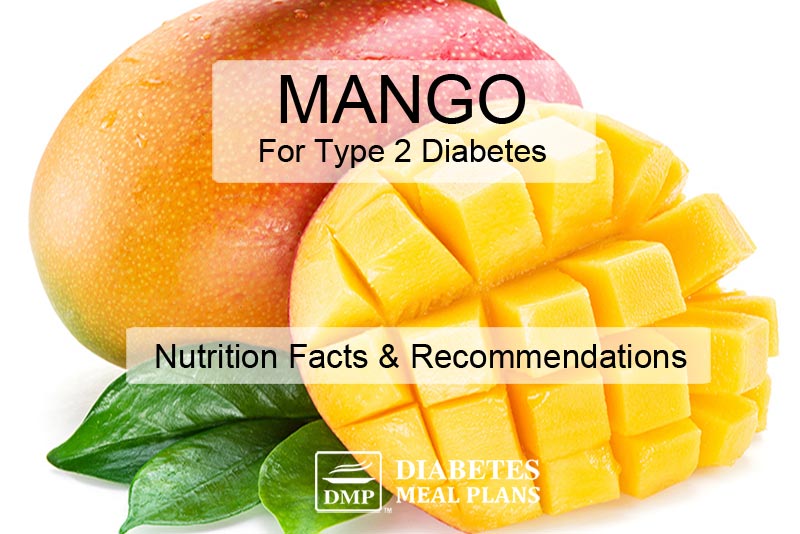Table of Contents[Hide][Show]
Mango may be a sweet fruit of summer, but is it really that “sweet” when it comes to diabetes and regulating your blood sugar?
Keep reading to learn why not every fruit is ideal for people living with type 2 diabetes or prediabetes…
Mango Nutrition Facts
Macronutrients
One mango contains:
- Kilojoules/Calories: 697/166
- Carbohydrates: 39.4g
- Total sugars: 37.9g
- Protein: 1.2g
- Fat: 0g
- Fibre: 3.8g

Mangos are super-sweet tasting, and there’s a good reason for that…they’re practically all sugar!
Many people are shocked to learn one mango racks up close to 40 grams of carbs, with very little fibre to slow all that sugar down!
Unfortunately that means this kind of tropical fruit is a “hard pass” for people trying to manage their blood sugar through diet. There’s just too many carbs and not enough fat, protein, or fibre to dampen the giant sugar-rush you’re going to get.
Micronutrients and Mangos
Unlike processed junk foods, mangos do contain some nutrients like 100% of your daily vitamin C from about half a fruit. Mangos also contain a moderate dose of vitamin B-6, as well as a little bit of magnesium, iron, and calcium.
However, you can get these nutrients from low carb vegetables and other low carb foods that won’t compromise your blood sugar stability.
For comparison, one red capsicum provides 9 times your daily recommended vitamin C – 420mg!
Recommendation on Mangos for Diabetes
Since sugary fruits like mangos are clearly out of the running, what fruits can you enjoy on a low carb diet?
There are actually quite a few options!
Here are some blood sugar friendly fruits that are safe to snack on:
- Fresh berries! Raspberries, strawberries, blueberries, and cranberries are all great fibre and antioxidant-rich fruit options when eaten in moderation (we suggest 1/4 to 1/2 cup per serve)
- Low sugar citrus fruits like lemons and limes are great for adding flavour to other foods, and grapefruits can be a fun “sweet and sour” fruit to enjoy on occasion
- Stone fruit like apricots, plums and peaches can be enjoyed in small portions (one small fruit per serve)
- A small handful of cherries (1/4 cup) can be a nice warm-weather treat, especially if you eat them frozen!
In general, we recommend sticking to just one serving of fruit per day and to focus on eating more low carb vegetables, fibre-rich nuts and seeds, healthy fats, and hearty meats.
Another tip is to combine any fruit you’re eating with another food that is high in either fat, protein, or fibre, to promote blood sugar stability. For example, enjoy your berries with a few nuts or pair your plum with a slice or two of cheese.

